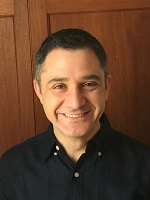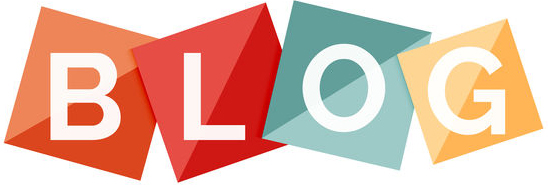Doing Psychoanalysis in … Cape Town: Vincenzo Sinisi
Vincenzo, you are a direct member of the IPA in Cape Town, South Africa. Can you tell us about your professional path - how did you manage to become an IPA analyst in Cape Town?
I started my journey by studying Clinical Psychology at Wits University in Johannesburg. This training exposed me to psychoanalytic ideas which felt right for me. A clinical psychology training needs to cover much ground, and I knew more depth was required to conduct a psychoanalytic therapy, let alone psychoanalysis effectively. The training was undoubtedly valuable, but I was not equipped to hold the space in a way that allowed the patient to step into something free-associative.
So, I kept on looking for other training opportunities when, I think in 2004, I received a group email from Mark Solms. He was interested in developing psychoanalysis, and possible training, in South Africa and he invited interested others to contact him. That was very exciting for me because until then I thought there would not be even the remotest hope for something like that. This led to a meeting which was to be the beginning of the South African Psychoanalysis Initiative (SAPI), a group formed to support the creation of a
South African Psychoanalytical Association.
The first problem I faced as a candidate hopeful was the lack of psychoanalysts in the country. At the time, there were only 3 (Mark Solms, Karen Solms and Kate Aubertin). When Gyuri Fodor, a Viennese trained analyst, agreed to move to Cape Town, I quickly met with him and we decided to work together. My wife and I moved to Cape Town (1200km) optimistic that something would grow from this and it did. The training started about four years into my analysis, and I took around another four years to be the first to qualify in 2015. Our group has since achieved provisional society status, and there are now 21 qualified psychoanalysts in South Africa. A great achievement!
Can you tell us a bit about the history - how did psychoanalysis start in South Africa?
I believe Freud announced the existence of a South African Psychoanalytic Society in 1935. This would have been under Wulf Sachs’ leadership, but its development was interrupted by apartheid since most of the members chose to emigrate to England. Much later, Sydney Press supported several South Africans to receive psychoanalytic training abroad, in the hope that some might return to establish psychoanalysis but, given the continuing political climate, and the years involved in training, few did.
Psychoanalytic psychotherapy did continue in South Africa - the Johannesburg psychoanalytic psychotherapy group formed as a clinical seminar group 39 years ago and enjoyed regular visits from British trained psychotherapists and psychoanalysts. There are currently 53 groups throughout the country that identify as psychodynamic. These are linked via an umbrella organisation (South African Psychoanalytic Confederation) but no qualifying course in psychoanalytic psychotherapy exists, and most members are psychologists.
It was in this context that Mark Solms was able to gather, and lead, interested psychotherapists to pursue an IPA accredited training. The process was not uncomplicated, and many asked: why can’t South Africa develop its own, why do we need to look North why not appreciate what we have grown so far? These were valid concerns, but I am glad that they did not stop the IPA training from being established. Something only possible with Mark Solms’ leadership and the outstanding input and absurdly hard work of Karen Solms, Susan Levy, Elda Stork, Mary-Anne Smith, Gyuri Fodor, and Barnaby B. Barratt (who also relocated from abroad to help make this possible).
Can you let us know a bit about your everyday work as a psychoanalyst in Cape Town?
It’s just ordinary people coming to my practice, mostly finding their way through a referral or my website. The same people who would ask to see a psychologist. Most people here don’t know what psychoanalysis is and very few can distinguish between a Psychiatrist, Psychologist, or Psychoanalyst. So far (I am new), I haven’t found it difficult to find patients when I am convinced that the right recommendation is an intensive psychoanalytic process. I don’t recommend psychoanalysis to every person. So, when I have the conviction that this is the proper treatment, I find that the patient often agrees. By this time there is already a resonance between us; we’re speaking a similar language, and we have already started working in this way. But the important thing is that I must believe before they will agree.
1.5 million black people live in the biggest township of Cape Town; many restaurants remain frequented by white customers being served by black people. The legacy of apartheid remains... How does it affect your work?
It’s ever-present. Practically, the demographics of the people who come to see me remain determined by our historical segregation: I see white and mixed-race patients predominantly, because of where my practice is, i.e. Cape Town. It was different in Johannesburg - that’s a more integrated city.
I’m a white male, so that offers a degree of privilege that helps me to fill my practice. People of all races and genders want to come and see me. It’s not the same for many black colleagues. White people are often less willing to see black colleagues than black people are to see white ones. It is not always the case but some black people do believe white people are more competent since racism is internalised by all.
Apartheid continues to show its effects in the consulting room, within the relationship between therapist and patient. Patients will assume I hold racist attitudes and either speak as if I am an ally in these or as though they are subjected to them. A black patient might quietly assume that I see them as inferior, suspect that I fear black rage, tiptoe around my white guilt, believe that I wish to make them ‘white’, or that I hate them for the transition, or hate me for the lack of change.
The fact of our context is always present. I AM someone who benefitted from an unjust system, and both the patient and I have real feelings about this. These must be somewhere in the room. I don’t see this as transference but appreciate it adds to the resistance and is imbued with fantasy worthy of analysis.
Race is an inescapable topic in South Africa. Fortunately, we can think together, as psychoanalysts, about these dynamics. This is helpful providing you remain open to hearing the patient’s own narrative.
How do you see the future of psychoanalysis in South Africa / Cape Town?
One of our tasks as an African society is to evolve African psychoanalysis. I don’t believe that psychoanalysis can, or should, survive in South Africa if it remains a predominately European practice. It has value to add but this will go unrecognised if the practice is perceived as an extension of the colonial project. Since psychoanalysis offers a profound opportunity to explore who we are, I look forward to our society producing theory through the analysis of Africans by Africans. Liberating theory that allows us to come into our own. I am sure that this, together with the influence of our unique history, will enable us to generate ideas that enrich the broader psychoanalytic sphere.
We may be a small society, but we are growing, and we are succeeding in becoming more racially and culturally diverse. The future looks bright.
 Vincenzo Sinisi is a psychoanalyst, group analyst and clinical psychologist in private practise in Cape Town, South Africa. He is a direct member of the IPA since 2015 and was qualified as a group analyst by the Institute of Group Analysis London in 2014. He is also the founder of TherapyRoute.com.
Vincenzo Sinisi is a psychoanalyst, group analyst and clinical psychologist in private practise in Cape Town, South Africa. He is a direct member of the IPA since 2015 and was qualified as a group analyst by the Institute of Group Analysis London in 2014. He is also the founder of TherapyRoute.com.
 Return to IPA Blog page
Return to IPA Blog page